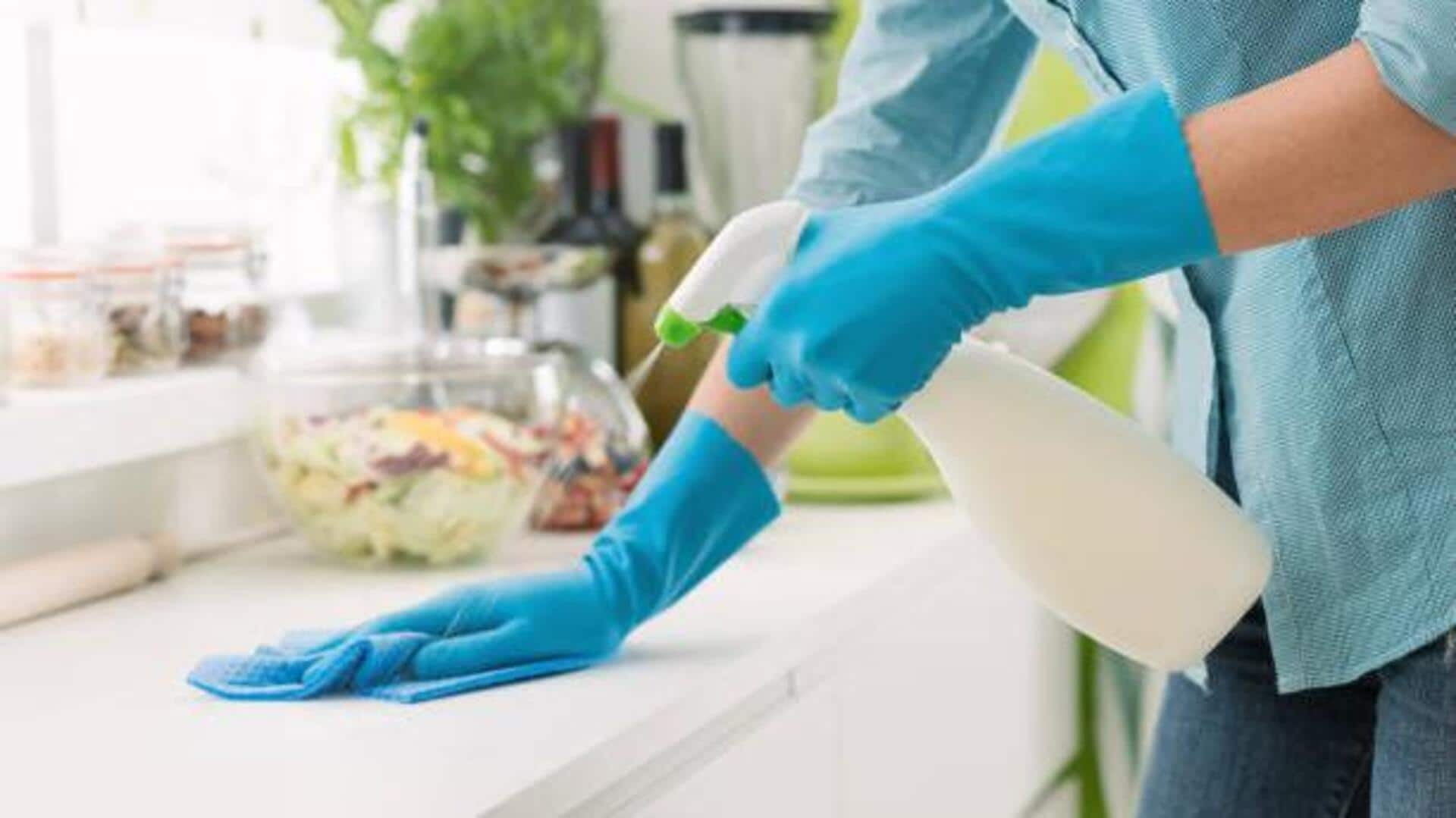
Household cleaning and health: Myth v/s facts
What's the story
Household cleaning is important for healthy living, but certain misconceptions can make it ineffective, or worse, harmful. Most people swear by myths that guarantee quick fixes or miraculous results, but these can sometimes do more harm than good. Knowing the truth behind the myths is important to ensure your cleaning efforts are both safe and effective. Here, we explore common household cleaning myths and their impact on health.
Myth 1
Vinegar as a universal cleaner
Vinegar is often touted as a universal cleaner capable of tackling any surface. While vinegar does have some antibacterial properties, it isn't effective against all types of bacteria and viruses. Plus, it shouldn't be used on surfaces like granite or marble, as its acidity can cause damage over time. For disinfecting purposes, it's important to use products specifically designed to kill germs effectively.
Myth 2
More soap means better cleaning
The notion that more soap equals better cleaning is common but false. Too much soap can leave behind residues that attract dirt and grime, making surfaces look dull and dirty over time. It's best to stick to the recommended amounts on product labels to make sure you're getting the best clean without unwanted residues.
Myth 3
Bleach cleans everything perfectly
Bleach is often deemed the ultimate solution for all cleaning needs, thanks to its strong disinfectant properties. However, it's important to note that bleach doesn't really clean dirt or grime; it only disinfects surfaces by killing bacteria and viruses. For proper cleaning, it's necessary to first remove visible dirt with appropriate cleaners before using bleach for disinfection purposes.
Myth 4
Natural products are always safe
Many people assume natural products are always safe, as they're from nature. However, that's not the case. Natural doesn't always mean non-toxic or suitable for every surface type in your home. In fact, some natural ingredients may cause an allergic reaction or damage surfaces if not handled properly. It's important to note that even "natural" products should be used carefully and with knowledge of their effects.
Myth 5
Air fresheners improve air quality
We all think air fresheners make our indoor air quality better by masking bad odors with pleasant ones. But, in reality, many air fresheners contain chemicals that may actually contribute to indoor air pollution rather than improving it significantly. Proper ventilation and regular cleaning can be more effective ways of maintaining good indoor air quality without relying heavily on artificial fragrances.